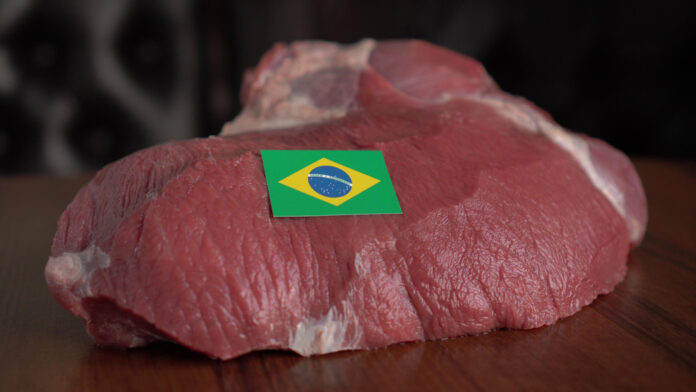The country imported 11 percent less meat in 2023 of only 1.2 billion kilograms versus 1.36 billion kilograms in 2022, according to data from the Bureau of Animal Industry (BAI).
BAI data show the largest happened in May last year when 10 percent of total volume or 122.31 million kilograms were imported from various countries.
According to the BAI, the biggest meat supplier last year was Brazil from which 395.88 million kilograms equal to 32.9 percent came from.
During the period, pork formed the bulk of imported meat at 591.89 million kilograms or 49.2 percent. This was 16.7 percent lower than in 2022 when the Philippines imported 710.36 million kilograms of pork.
Chicken meat was next biggest with 426.62 million kilograms or 35.4 percent. This was up 3.8 percent from only 411.07 million kilograms in 2022.
Beef imports last year was up 12 percent to 145 million kilograms or 12 percent of total meat imports but 22 percent lower than beef imports of 186.15 million kilograms in 2022.
The Philippines imported 38.99 million kilograms of buffalo last year, down 18 percent from 2022’s 47.66 million kilograms as turkey imports surged 36.8 percent to 698,682 kilograms from 510,775 kilograms in 2022.
Lamb imports last year was also down 5.8 percent to 727,956 kilograms from 773,141 kilograms although duck meat imports jumped 95.7 percent to 302,105 kilograms in 2023 from 154,369 kilograms in 2022.
Meat Importers and Traders Association (MITA) president Jesus Cham said meat imports from 2022 to 2024 have proven steady although in 2023 the total import proved lower compared to 2022.
Cham said the “front loading of meat imports in May was consistent of expectations of buoyant Christmas sales and the need to replenish supply well ahead of time.
“Going forward, we are cautious on the supply of pork as importers face headwinds. The Department of Agriculture suspended the pork quota and did not push through with its distribution which should have been made in January. Instead, the DA allowed for provisional quota amounting to 15 percent for meat processors and 10 percent for traders,” Cham said.
He noted the DA has just announced the date of distribution of quota on May 3 this year which is a 3-month delay.
Cham said even if new orders were allowed access to meat from Brazil, Germany, Hungary and Poland, many items regularly imported in the past were not included in the list.
“The items excluded were pork belly, loins and boneless cuts of leg and shoulder of kasim or pigue. These items were allowed prior to the new orders,” Cham said.
He also claimed the recent issuance of Administrative Order 20 allowing the importation of products beyond the authorized minimum access volumes (MAV), the economic managers should also consider extending the low tariff on pork for the duration of the Marcos administration or at least 2 years. Also, the MAV should be expanded to include both pork and poultry.
Cham said the additional supply and more meaningful government intervention helps guard against inflation.







